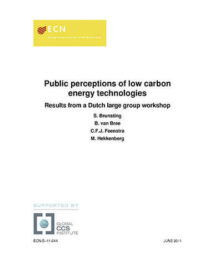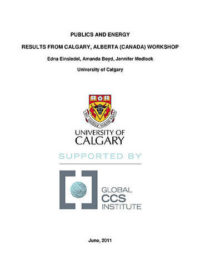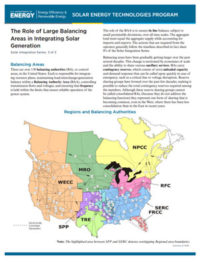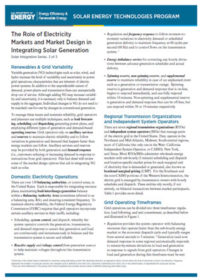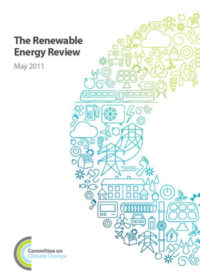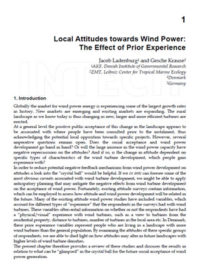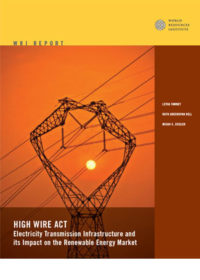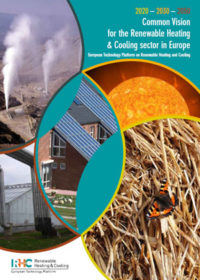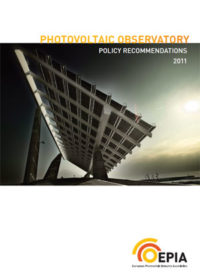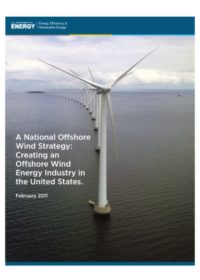Resources
Publications
Our publications, reports and research library hosts over 500 specialist reports and research papers on all topics associated with CCS.
View our Publication Library Disclaimer.
Filter by
Public perceptions of low carbon energy technologies: Results from a Dutch large group workshop
1st June 2011
Topic(s): Carbon capture use and storage (CCUS), Public engagement, Renewables
Disclaimer
The content within the Global CCS Institute Publications, Reports and Research Library is provided for information purposes only. We make every effort and take reasonable care to keep the content of this section up-to-date and error-free. However, we make no claim as to its accuracy, currency or reliability.
Content and material featured within this section of our website includes reports and research published by third parties. The content and material may include opinions and recommendations of third parties that do not reflect those held by the Global CCS Institute.
Publics and energy: results from Calgary, Alberta (Canada) workshop
1st June 2011
Topic(s): Carbon capture use and storage (CCUS), Public engagement, Renewables
Disclaimer
The content within the Global CCS Institute Publications, Reports and Research Library is provided for information purposes only. We make every effort and take reasonable care to keep the content of this section up-to-date and error-free. However, we make no claim as to its accuracy, currency or reliability.
Content and material featured within this section of our website includes reports and research published by third parties. The content and material may include opinions and recommendations of third parties that do not reflect those held by the Global CCS Institute.
Is the fit right? Considering technological maturity in designing renewable energy policy
1st June 2011
Topic(s): Policy law and regulation, Renewables
Recent studies suggest that the United States can greatly expand its deployment of renewable energy resources beyond current levels. This would reduce emissions of harmful pollutants and enhance energy security by diversifying the nation’s domestic energy supply. This brief describes a number of policy tools that can be employed to drive investment in renewable energy technologies and discusses which policy options may be the best fit based on the commercial maturity of a targeted technology.
Disclaimer
The content within the Global CCS Institute Publications, Reports and Research Library is provided for information purposes only. We make every effort and take reasonable care to keep the content of this section up-to-date and error-free. However, we make no claim as to its accuracy, currency or reliability.
Content and material featured within this section of our website includes reports and research published by third parties. The content and material may include opinions and recommendations of third parties that do not reflect those held by the Global CCS Institute.
The role of large balancing areas in integrated solar generation
1st May 2011
Topic(s): Renewables, Solar energy
There are over 130 balancing authorities (BA), or control areas, in the United States. Each is responsible for integrating resource plans, maintaining load-interchange-generation balance within a balancing authority area (BAA), controlling transmission flows and voltages, and ensuring that frequency is held within the limits that ensure reliable operation of the power system. This fact sheet dicusses the role these balancing areas have in integrating solar generation.
Disclaimer
The content within the Global CCS Institute Publications, Reports and Research Library is provided for information purposes only. We make every effort and take reasonable care to keep the content of this section up-to-date and error-free. However, we make no claim as to its accuracy, currency or reliability.
Content and material featured within this section of our website includes reports and research published by third parties. The content and material may include opinions and recommendations of third parties that do not reflect those held by the Global CCS Institute.
The role of electricity markets and market design in integrating solar generation
1st May 2011
Topic(s): Renewables, Solar energy
Variable generation (VG) technologies such as solar, wind, and hydro increase the level of variability and uncertainty in power grid operations; characteristics that are inherent of electric power systems. In addition to the unpredictable nature of demand, power plants and transmission lines can unexpectedly drop out of service. This fact sheet will review some of the market design options that aid in integrating VG such as solar.
Disclaimer
The content within the Global CCS Institute Publications, Reports and Research Library is provided for information purposes only. We make every effort and take reasonable care to keep the content of this section up-to-date and error-free. However, we make no claim as to its accuracy, currency or reliability.
Content and material featured within this section of our website includes reports and research published by third parties. The content and material may include opinions and recommendations of third parties that do not reflect those held by the Global CCS Institute.
This Committee on Climate Change report sets out their conclusions on the potential for renewable energy in electricity, heat and transport in the period to 2030 and beyond.
The overall conclusion is that there is scope for significant penetration of renewable energy to 2030 (e.g. up to 45%, compared to 3% at the time of publication). Higher levels subsequently (i.e. to 2050) would be technically feasible. Equally however, it would be possible to decarbonise electricity generation with very significant nuclear deployment and have limited renewables; carbon capture and storage may also emerge as a cost-effective technology.
Disclaimer
The content within the Global CCS Institute Publications, Reports and Research Library is provided for information purposes only. We make every effort and take reasonable care to keep the content of this section up-to-date and error-free. However, we make no claim as to its accuracy, currency or reliability.
Content and material featured within this section of our website includes reports and research published by third parties. The content and material may include opinions and recommendations of third parties that do not reflect those held by the Global CCS Institute.
Local attitudes towards wind power: the effect of prior experience
4th April 2011
Topic(s): Public engagement, Renewables, Social research, Wind energy
This chapter, authored by Jacob Ladenburg and Gesche Krause, from the InTech book ‘From turbine to wind farms - technical requirements and spin-off products’, describes public acceptance of their changing rural landscapes as turbines are erected.
Disclaimer
The content within the Global CCS Institute Publications, Reports and Research Library is provided for information purposes only. We make every effort and take reasonable care to keep the content of this section up-to-date and error-free. However, we make no claim as to its accuracy, currency or reliability.
Content and material featured within this section of our website includes reports and research published by third parties. The content and material may include opinions and recommendations of third parties that do not reflect those held by the Global CCS Institute.
High wire act: electricity transmission infrastructure and its impact on the renewable energy market
1st April 2011
Topic(s): Renewables, Solar energy, Wind energy
Renewable energy, particularly electricity generated from sun, wind, and waves, has a critical role to play in powering a low-carbon economy. Despite its potential, the scaling up of renewable energy presents unique challenges. This paper examines transmission developments and challenges in the European Union (EU), China, and the United States—three regions that present entirely different pictures in terms of governance structures, institutions, and traditions for making decisions about transmission.
Disclaimer
The content within the Global CCS Institute Publications, Reports and Research Library is provided for information purposes only. We make every effort and take reasonable care to keep the content of this section up-to-date and error-free. However, we make no claim as to its accuracy, currency or reliability.
Content and material featured within this section of our website includes reports and research published by third parties. The content and material may include opinions and recommendations of third parties that do not reflect those held by the Global CCS Institute.
Common vision for the renewable heating and cooling sector in Europe: 2020 – 2030 – 2050
14th March 2011
Topic(s): Renewables
This report identifies major technological and non-technological challenges to the uptake of the renewable heating and cooling (RH&C) systems and assesses the potential of renewable energy sources to contribute to the European and national energy needs and targets.
Disclaimer
The content within the Global CCS Institute Publications, Reports and Research Library is provided for information purposes only. We make every effort and take reasonable care to keep the content of this section up-to-date and error-free. However, we make no claim as to its accuracy, currency or reliability.
Content and material featured within this section of our website includes reports and research published by third parties. The content and material may include opinions and recommendations of third parties that do not reflect those held by the Global CCS Institute.
Photovoltaic observatory: policy recommendations
1st March 2011
Topic(s): Domestic policy, Policy law and regulation, Renewables, Solar energy, Solar photovoltaics
The deployment of solar photovoltaic electricity (PV) is playing a crucial role in helping the EU meet its commitment in fighting climate change and ensure security of supply, reducing Europe’s dependency on energy imports.
In the context of the fast evolution of the European PV market in recent years, the need to permanently monitor market dynamics has led to the creation of the Photovoltaic Observatory. The Photovoltaic Observatory identifies recommended conditions for market development and best practices for the sustainable development of PV by basing its analysis on examining existing policies of several key countries. The Photovoltaic Observatory also focuses on relevant regulatory issues, financial incentives, administrative barriers and grid connection procedures.
Disclaimer
The content within the Global CCS Institute Publications, Reports and Research Library is provided for information purposes only. We make every effort and take reasonable care to keep the content of this section up-to-date and error-free. However, we make no claim as to its accuracy, currency or reliability.
Content and material featured within this section of our website includes reports and research published by third parties. The content and material may include opinions and recommendations of third parties that do not reflect those held by the Global CCS Institute.
2050 pathways analysis: response to the call for evidence. Part 1
1st March 2011
Topic(s): Economics, Renewables
In July 2010, the Government published its 2050 Pathways Analysis work. The analysis explored a range of potential pathways, choices and trade-offs for achieving long-term greenhouse gas emissions reduction target and ensuring the UK’s energy needs are met.
The 2050 Pathways Analysis was published as a Call for Evidence, running from 27th July to 5th October 2010. The questions on which evidence was sought are set out in Annex A. The United Kingdom’s Department of Energy and Climate Change (DECC) published the analysis as a Call for Evidence in order to test with a wider range of experts and stakeholders whether the assumptions and data underpinning the model were considered to be sound and based on the best available evidence.
The response to the Call for Evidence was very positive. The overwhelming opinion was that the 2050 Pathways Analysis was a valuable tool and a useful contribution to the debate about the United Kingdom’s energy future.
This report sets out how DECC revised the model, and the evidence and assumptions that underlie the changes they made (see Part 2A).
Disclaimer
The content within the Global CCS Institute Publications, Reports and Research Library is provided for information purposes only. We make every effort and take reasonable care to keep the content of this section up-to-date and error-free. However, we make no claim as to its accuracy, currency or reliability.
Content and material featured within this section of our website includes reports and research published by third parties. The content and material may include opinions and recommendations of third parties that do not reflect those held by the Global CCS Institute.
A national offshore wind strategy: creating an offshore wind energy industry in the United States
7th February 2011
Topic(s): Economics, Offshore wind, Renewables, Wind energy
A National Offshore Wind Strategy: Creating an Offshore Wind Energy Industry in the United States was prepared by the U.S. Department of Energy’s (DOE) Office of Energy Efficiency and Renewable Energy (EERE) Wind and Water Power Program to outline the actions it will pursue to support the development of a world‐class offshore wind industry in the United States.
This report describes how offshore wind energy can help the United States reduce its greenhouse gas emissions, diversify its energy supply, provide cost‐competitive electricity to key coastal regions, and stimulate revitalization of key sectors of the economy by investing in infrastructure and creating skilled jobs.
Disclaimer
The content within the Global CCS Institute Publications, Reports and Research Library is provided for information purposes only. We make every effort and take reasonable care to keep the content of this section up-to-date and error-free. However, we make no claim as to its accuracy, currency or reliability.
Content and material featured within this section of our website includes reports and research published by third parties. The content and material may include opinions and recommendations of third parties that do not reflect those held by the Global CCS Institute.
